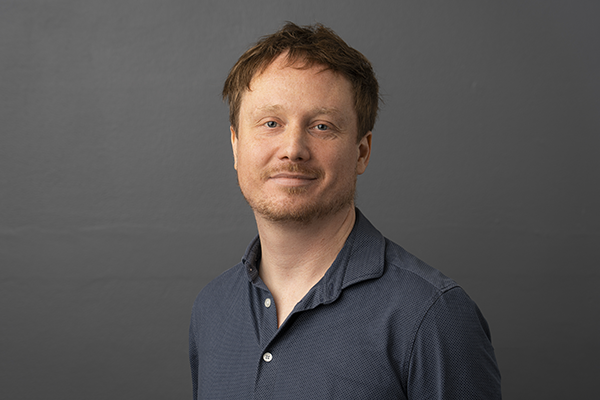Torben Sølbeck Rasmussen
Research leader

Project title
PhageX: Next-generation bacteriophage therapy for treating gut-related diseases
What is your project about?
Our gut microbiome consists primarily of bacteria and bacterial viruses (bacteriophages). An imbalance in the gut microbiome is linked to various diseases such as colorectal cancer, obesity, depression, and inflammatory bowel disease. Treating these conditions by restoring the balance in the gut microbiome, often through fecal transplantation (transfer of feces from a healthy donor to a patient), has been attempted, but widespread use is unlikely due to varying effectiveness and the risk of infections. However, recent studies indicate that bacteriophages play a crucial role in the success of fecal transplantation. PhageX is based on the bold hypothesis that treatment with bacteriophages can not only be more effective than fecal transplantation, but can also be transformed into a reproducible bacteriophage therapy, ensuring a low risk of infection from harmful microbes in the donor.
How did you become interested in your particular field of research?
My fundamental interest in microbiology was sparked in high school, where we had excellent opportunities to develop innovative ideas about microbiology and engineering in general. However, my fascination with bacteriophages and bacteriophage therapy was catalyzed during my time at the Technical University of Denmark (DTU). There, a fellow student involved me in a bachelor project where we isolated bacteriophages from sputum of patients with cystic fibrosis. These bacteriophages could potentially be used to attack and kill some of the bacteria exacerbating the disease. This made me aware of bacteriophages as an alternative to antibiotics and their untapped potential as a strong supplement to current medical treatments.
What are the scientific challenges and perspectives in your project?
There are two major technical challenges. One is to create an effective encapsulation of bacteriophages that can protect them from the acidic environment in the stomach, while releasing them in the right place in the intestine. The other is to establish a reliable screening process, where the bacteriophage treatments that work best in the laboratory, are also the ones that work best, when tested in an animal model. My project aims to contribute to a deeper understanding of the role of bacteriophages in our gut and how to find the best donor for the individual patient. Additionally, a new bacteriophage encapsulation technology could potentially be used to combat biofilm and be part of bacteriophage therapy for multi-resistant bacteria.
What is your estimate of the impact, which your project may have to society in the long term?
I hope that my research will bring bacteriophage-based treatment of gut-related diseases closer to clinical application by developing new methods, laying the foundation for a next-generation of bacteriophage therapy with improved safety, high efficacy, and fewer side effects than traditional treatments. Hopefully, PhageX's results will also contribute to paving the way for approval by relevant authorities, catalyzing the integration of bacteriophage therapy into medical treatments. While inflammatory bowel disease will serve as a primary model, PhageX will open many possibilities to cure various gut-related diseases with minimal risk to the patient.
Which impact do you expect the Sapere Aude programme will have on your career as a researcher?
First and foremost, I am incredibly honored and proud to receive the Sapere Aude: DFF Starting Grant. It provides an excellent opportunity to establish my own research group with a focus on bacteriophage-based therapy. Currently, there are very few research groups worldwide with similar focus, giving me great momentum to stay ahead of competing groups. Also, the recognition that comes with this prestigious research program will open new opportunities and accelerate my research career both nationally and internationally.
Background and personal life
Prior to the role as a researcher, I’m a father to my two (soon to be three) lovely and energetic boys aged 0, 3, and 6. You can often find me at local playgrounds or other family-friendly attractions where other sleepy parents hang out. In those rare moments when I am not engaged with family or work, I enjoy hiking (preferably long, many days, and in colder climates), playing computer games with friends, and listening to music and podcasts. After spending many years playing classical guitar, I made an educational leap from the academy of music to biotechnology at DTU, however, I still find great joy in playing the guitar.
View all research leaders here
Research institution
University of Copenhagen
Research field
Microbiology
City of your current residence
Værløse
High school
Frederiksberg HTX
